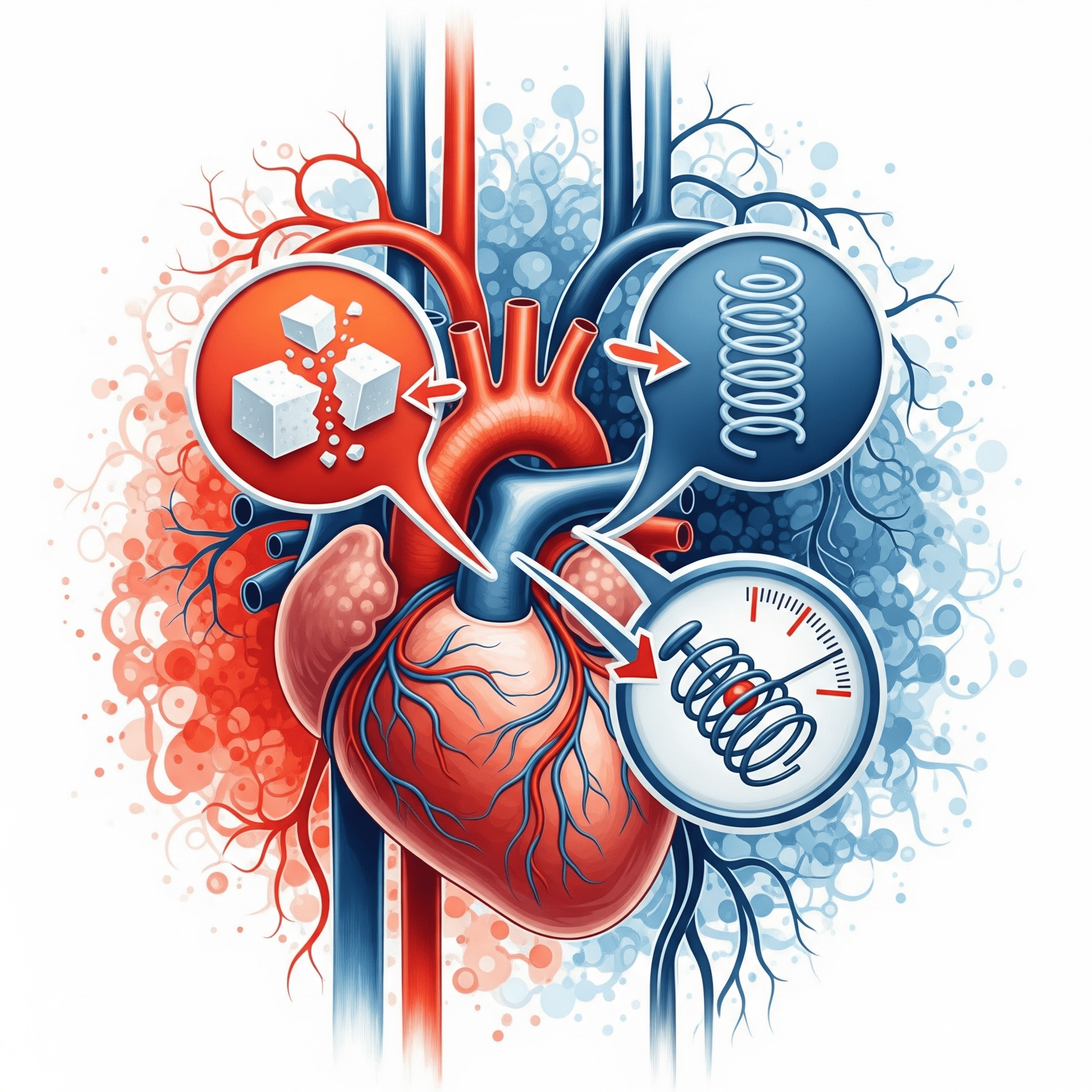22Jul
Understanding the Silent Threat: Diabetes and High Blood Pressure

Introduction
In a world brimming with health information, two conditions often stand out for their silent, yet significant, impact: diabetes and high blood pressure (hypertension). Individually, they pose serious health risks. Together, they form a formidable duo, amplifying the danger to your heart, kidneys, eyes, and overall well-being. This article, designed for a global audience including the US, Canada, Australia, and Ireland, aims to shed light on these prevalent conditions, empowering you with the knowledge to protect your health.
The Alarming Numbers
The prevalence of both diabetes and high blood pressure is a global concern. According to the International Diabetes Federation, an estimated 537 million adults worldwide were living with diabetes in 2021, a number projected to rise significantly. Similarly, the World Health Organization reports that approximately 1.28 billion adults aged 30-79 years worldwide have hypertension. These figures underscore the urgent need for awareness, prevention, and effective management strategies.
Diabetes: More Than Just Sugar
Diabetes is a chronic condition that occurs when your body either doesn't produce enough insulin or can't effectively use the insulin it produces. Insulin is a hormone that regulates blood sugar. Without proper insulin function, glucose builds up in your bloodstream, leading to high blood sugar levels.
There are several types of diabetes, with the most common being:
- Type 1 Diabetes: An autoimmune condition where the body's immune system attacks and destroys the insulin-producing cells in the pancreas.
- Type 2 Diabetes: The most common form, where the body becomes resistant to insulin or doesn't produce enough insulin to maintain normal blood glucose levels. Often linked to lifestyle factors like diet and lack of exercise.
- Gestational Diabetes: Develops during pregnancy and can increase the risk of developing Type 2 diabetes later in life for both mother and child.
Uncontrolled high blood sugar can lead to severe complications, including heart disease, stroke, kidney failure, nerve damage, and vision loss.
High Blood Pressure: The Silent Killer
Hypertension, or high blood pressure, is often called the "silent killer" because it typically has no symptoms. It's a condition where the force of your blood pushing against the walls of your arteries is consistently too high. Over time, this increased pressure can damage your arteries and lead to serious health problems.
Normal blood pressure is generally considered to be below 120/80 mmHg. High blood pressure is usually diagnosed when readings consistently exceed 130/80 mmHg.
Factors contributing to high blood pressure include:
- Genetics: A family history of hypertension can increase your risk.
- Lifestyle: Poor diet (high in sodium, low in potassium), lack of physical activity, excessive alcohol consumption, and smoking are significant contributors.
- Age: The risk of high blood pressure increases with age.
- Underlying Conditions: Certain medical conditions, like kidney disease or thyroid disorders, can also cause high blood pressure.
The Dangerous Link: When Diabetes and Hypertension Collide
The connection between diabetes and high blood pressure is profound and concerning. Research shows that a majority of people with diabetes also have hypertension. This co-existence significantly escalates the risk of:
- Cardiovascular Disease: The leading cause of death for people with diabetes, the risk of heart attack and stroke is doubled when both conditions are present.
- Kidney Disease: Both conditions independently damage the kidneys. Together, they accelerate kidney function decline, potentially leading to kidney failure.
- Eye Problems: High blood sugar and high blood pressure can both damage the delicate blood vessels in the eyes, increasing the risk of retinopathy and blindness.
- Nerve Damage (Neuropathy): The combination can worsen nerve damage, leading to pain, numbness, and other complications, particularly in the feet.
Taking Control: Prevention and Management Are Key
The good news is that both diabetes and high blood pressure are largely preventable and manageable through lifestyle changes and, when necessary, medication.
Lifestyle Strategies:
- Healthy Diet: Focus on a diet rich in fruits, vegetables, whole grains, and lean proteins. Limit processed foods, sugary drinks, saturated and trans fats, and excessivesodium. The DASH (Dietary Approaches to Stop Hypertension) diet is an excellent example of a heart-healthy eating plan.
- Regular Physical Activity: Aim for at least 150 minutes of moderate-intensity aerobic activity or 75 minutes of vigorous-intensity activity per week. Even short bursts of activity throughout the day can make a difference.
- Maintain a Healthy Weight: Losing even a small amount of weight can significantly improve blood sugar and blood pressure control.
- Limit Alcohol and Quit Smoking: Both alcohol and smoking negatively impact blood pressure and overall cardiovascular health.
- Stress Management: Chronic stress can contribute to both conditions. Practice relaxation techniques like yoga, meditation, or deep breathing.
- Adequate Sleep: Aim for 7-9 hours of quality sleep per night. Poor sleep can affect insulin sensitivity and blood pressure.
Medical Management:
- Regular Check-ups: Routine visits to your doctor are crucial for early detection and ongoing management.
- Monitoring: If you have diabetes or high blood pressure, regularly monitor your blood sugar and blood pressure levels as advised by your healthcare provider.
- Medication: Your doctor may prescribe medications to help manage your blood sugar and blood pressure. Adhere to your medication regimen as directed.
Your Health, Your Power
Understanding the risks and taking proactive steps are vital in managing and preventing diabetes and high blood pressure. By adopting a healthy lifestyle and working closely with your healthcare provider, you can significantly reduce your risk of complications and live a healthier, more fulfilling life. Don't wait for symptoms to appear—take control of your health today.
Disclaimer: This article is for informational purposes only and does not constitute medical advice. Always consult with a qualified healthcare professional for any health concerns or before making any decisions related to your health or treatment.
The Dangerous Link Between Diabetes and Hypertension
Several studies and health organizations highlight the strong correlation between the two conditions and their combined risks.
- Diabetes and Hypertension: A Position Statement by the American Diabetes Association
- Diabetes and High Blood Pressure | Johns Hopkins Medicine
- Hypertension in Diabetes: An Update of Basic Mechanisms and Clinical Disease
- Diabetes and hypertension: Connection, complications, risks - Medical News Today
Live well, live healthy!


